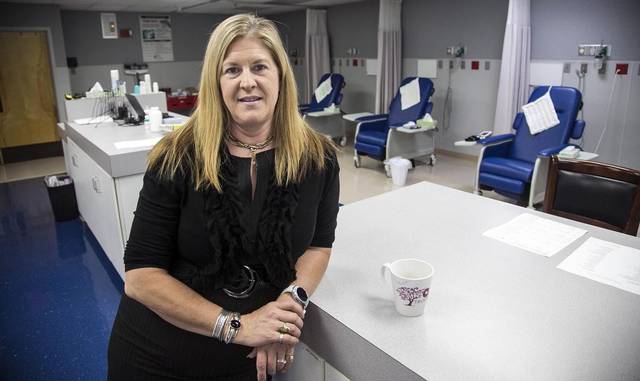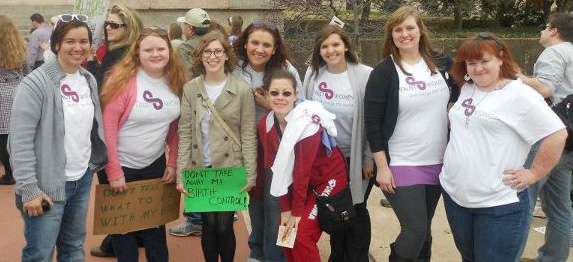Trust Women Foundation – for the access to reproductive rights in Kansas
Denise Nanni and Milena Rampoldi, ProMosaik. In the following our interview
with Julie A. Burkhart, founder and CEO
of Trust Women Foundation in Kansas. The foundation operates two clinics –
one in Wichita, Kansas, and one in Oklahoma City. The clinics are called Trust
Women South Wind Women’s Center. We talked to Julie about reproductive rights,
about abortion rights, and in particular how to improve the situation for women
to guarantee and protect their basic human rights.

What are the factors that led to the lack of access to
reproductive rights in Kansas?
There are two parts
to this answer. One, Kansans, as a majority, clearly support reproductive
rights, but lawmakers have taken a staunch anti-choice position, since Governor
Sam Brownback took office, passing legislation that limits women’s access.
Trust Women has been heavily involved in efforts to repeal laws that put up
roadblocks for women and in blocking anti-choice legislation that is proposed
by extremist lawmakers. We believe that all women should be able to make
personal medical decisions for themselves. We are looking forward to a more
moderate Kansas Legislature this session.
After the
assassination of my boss and mentor, Dr. George Tiller, there was no access to
abortion care west of the Kansas City area for almost four years; until our
clinic opened. Women then had to drive, hours away, to obtain abortion care.
Additionally, other clinics that provided abortion care and family planning
closed due to the hostility they faced from the State.
In spite of religious beliefs, abortion should be considered
a matter of personal choice. Why, according to your opinion, it is still a
reason for social conflict?
I think it loops back
to respect for women and their decisions. About 70 percent of our patients at
our clinics in Wichita and Oklahoma City already have children. When they come
to us for abortion care, they simply are trying to make the best decision for
their families and the children they already have. Ultimately, it should not
matter why a woman is seeking to terminate a pregnancy. It is her legal right
to do so, and lawmakers’ personal religious beliefs should not be part of the
equation.

What are the legal challenges that clinics and physicians
cope with?
I receive a subpoena
at least once a month from taxpayer-funded state agencies – complaints drummed
up by the anti-choice activists. Responding to them wastes not only our time
but our financial resources. We have dealt with zoning challenges, surprise
inspections and punitive regulations that other health care providers do not
face. For example, laws requiring physicians to have hospital admitting
privileges do not protect women; they simply make it more difficult for women
to access their legal reproductive rights due to alienating physicians from
mainstream medical practice and groups in their communities. Our physicians and
staff face harassment from anti-choice protesters on a daily basis. Lastly,
when restrictive anti-choice laws are passed, which we are unable to stop in
the legislature, we then have to litigate; which also takes time, money and
other resources to challenge.
Do you involve civil society in your activities? If yes,
how?
We have a robust
advocacy and outreach program and seek to drive conversations about what we
call “leaning in” to abortion. We organize canvasses, lobby in the
legislatures, produce voter guides and questionnaires and participate in health
care and other conferences. I speak regularly to groups about the work we are
doing to ensure that women in underserved communities in the Midwest and South
have access to abortion care.
Do you cooperate with local authorities and institutions? If
yes, how?
our line of work is so heavily regulated, we must cooperate with local and
state authorities. We have good relationships with law enforcement agencies and
communicate regularly with them. We are also members of the Abortion Care
Network, National Family Planning and Reproductive Health Association,
Association of Reproductive Health Professionals, Feminist Abortion Network and
Physicians for Reproductive Health. Our clinics are accredited by the National
Abortion Federation, a distinction of pride for us. We are licensed facilities
in both Kansas and Oklahoma.


